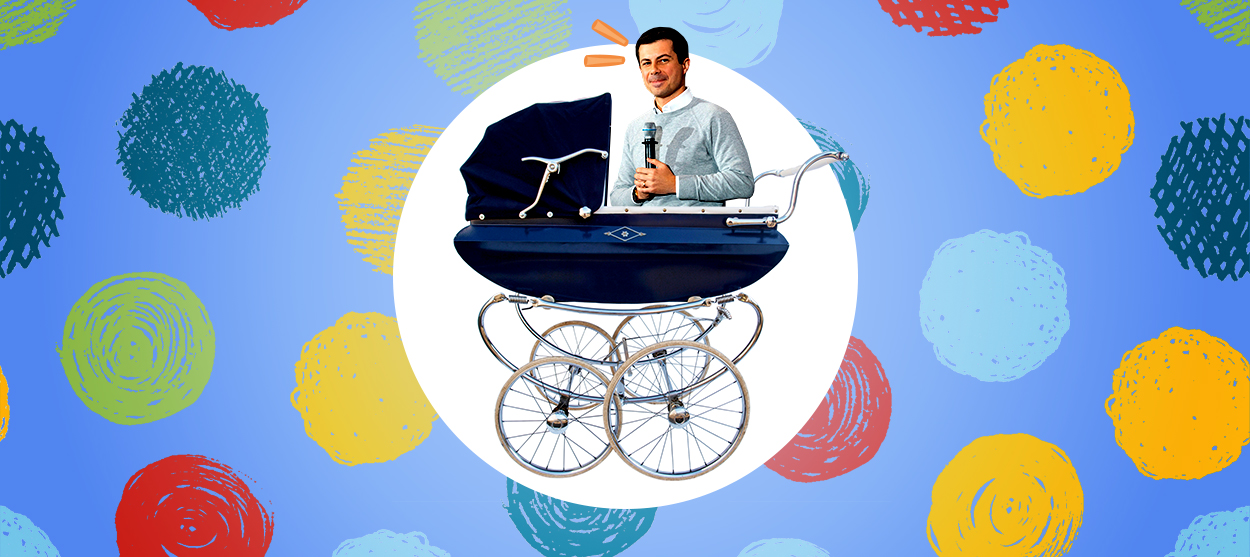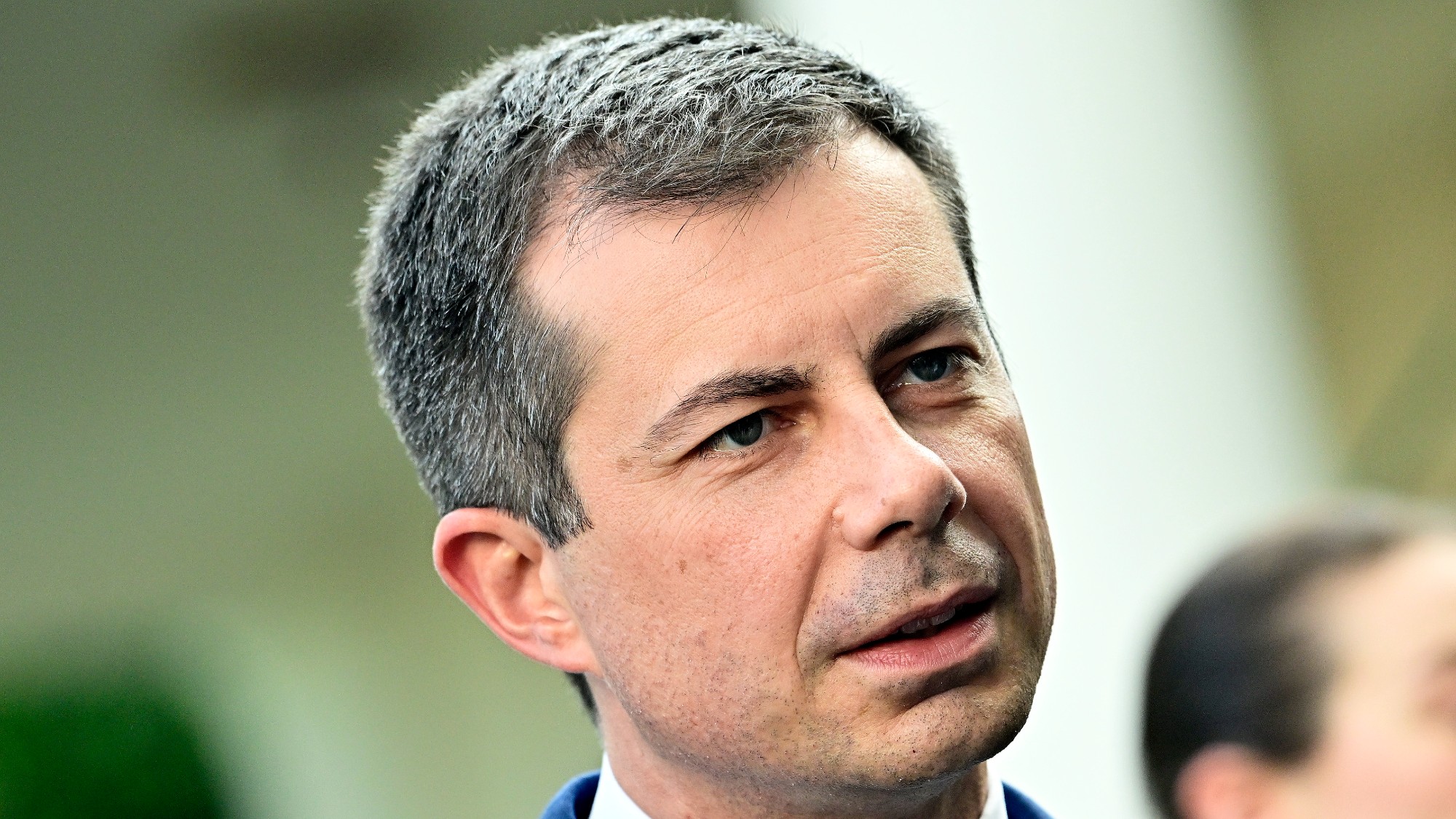Inexperience is one of Mayor Pete's greatest assets
Rookies always win


A free daily email with the biggest news stories of the day – and the best features from TheWeek.com
You are now subscribed
Your newsletter sign-up was successful
Mayor Pete is having his moment — for the second time in the campaign. Surging to the head of the pack in a recent Iowa poll, and edging out Vice President Joe Biden in last quarter's money race, Buttigieg is staking his claim to being the goldilocks candidate for president who can appeal to both moderates and progressives — not to mention being half the age of the three national poll leaders.
Buttigieg's rise is a clear testament to his substantial political talents. But it has also prompted sputtering disbelief from the many other candidates with vastly more experience who can make similar claims to having found the ideological sweet spot but who have languished in the low single digits in national and most early-state polls. Cory Booker achieved national recognition as the mayor of Newark before becoming New Jersey's junior senator. Steve Bullock was a popular two-term Democratic governor of deep-red Montana. Three-term senator Amy Klobuchar is far more popular in her electorally-crucial Midwestern home state than most national Democrats, and was also rated the most productive senator in a generally gridlocked Congress. The Democrats hardly lack for options if they aren't happy with the front-runners. And if they aren't happy with those alternatives either, there are plenty of other options still eager to jump into the race — as Deval Patrick and Michael Bloomberg made abundantly clear over the past several days. Why on Earth would they choose the mayor of South Bend, Indiana?
But perhaps this has it backwards. Perhaps Buttigieg isn't rising despite his lack of traditional qualifications for the office, but in part because of them.
The Week
Escape your echo chamber. Get the facts behind the news, plus analysis from multiple perspectives.

Sign up for The Week's Free Newsletters
From our morning news briefing to a weekly Good News Newsletter, get the best of The Week delivered directly to your inbox.
From our morning news briefing to a weekly Good News Newsletter, get the best of The Week delivered directly to your inbox.
Consider: When was the last time the more experienced candidate won the presidency? The answer: 1988, over thirty years ago. Since the end of the Cold War, the less-experienced candidate has won every time. First-term Sen. Barack Obama trounced veteran Sen. John McCain, and political neophyte Donald Trump beat Hillary Clinton, touted as the best-prepared candidate ever to run. In 2000 an incumbent vice president faced off against the son of a former president, and the result was a virtual tie.
Moreover, the only challenger to unseat an incumbent president was also the least experienced. Bill Clinton, governor of tiny Arkansas, denied President George H. W. Bush a second term, but was able to dispatch a challenge from Senate Majority Leader Bob Dole with ease. Nor did Sen. John Kerry or Gov. Mitt Romney — both of whom had longer resumés than the presidents they challenged — fare any better, notwithstanding the relatively tepid popularity of the incumbents in question and the deep dissatisfaction with the country's direction at the time. If the Democrats were to take that history to heart, and seek a nominee with even less traditional experience to challenge Trump, then apart from Buttigieg their only alternatives would be even less plausible: Andrew Yang, Tom Steyer, and Marianne Williamson.
With such a small data set any pattern may be dismissed as mere coincidence, but I suspect there is something real behind the phenomenon. Parties that recently lost a presidential election typically respond by seeking a restoration, getting the electorate to admit they made a mistake last time. But the electorate is rarely inclined to blame themselves, and restoration candidacies only remind them of the reason they chose to make a change. Meanwhile, parties that lost two presidential elections are frequently more willing to entertain serious debate about the party's direction before choosing a leader, and the winner of such debates is frequently someone less completely associated with the prior leadership — and therefore is likely to have less experience at a national level. Buttigieg allows the Democrats to have the best of both worlds: They can dodge an ideological battle and still pick someone who is unequivocally new.
Inexperience can also be a positive asset in positioning oneself as the agent of change. Barack Obama, for example, was able to win the Democratic nomination substantially because he opposed the Iraq War while both Hillary Clinton and John Edwards voted for it. But Obama had opposed the war from the position of a state senator. His liberal constituents were hardly likely to punish him for his opposition, and if the war had gone well he would have opportunities in the future to establish his hawkish credentials. It was a much lower-risk political decision than the one most sitting senators had to make, and most of the senators who made it did so in the expectation that it would put them outside the political mainstream — not the behavior you would expect of prospective presidential candidates. Similarly, Buttigieg today has the freedom to define himself according to the needs of the moment with relatively less concern about his record than a former prosecutor like Kamala Harris.
A free daily email with the biggest news stories of the day – and the best features from TheWeek.com
The problem is that this quality, while useful in a campaign, is of little value in a president. Presidents have to make decisions in real time, informed, one hopes, both by the expertise of well-qualified advisors and by their own deeper perspective on affairs. If experienced leaders tend to have already absorbed a fossilized consensus, and therefore cannot learn from experience, inexperienced leaders may not have a well-developed perspective of their own, and are therefore vulnerable to being carried along by expert opinion. So while Obama derided Iraq as a "dumb" war, that didn't stop him from starting his own dumb war in Libya. Nor had he developed a deeper perspective on what had gone wrong with the American economy that could have informed his response to the financial crisis. Instead, in both cases, he largely followed the advice of the experienced veterans he hired, for better or for worse.
That's what Democrats should expect of Buttigieg as well, which may be what makes an increasing number them comfortable with his candidacy. Our country has been increasingly roiled by a deep-seated discontent with the political class. Far from being an outsider, Buttigieg is one of the most impressive young representatives of that class. Choosing him would allow them to choose the future over the past, while reassuring themselves that the future is going to look pretty much how they always expected it would.
Want more essential commentary and analysis like this delivered straight to your inbox? Sign up for The Week's "Today's best articles" newsletter here.
Noah Millman is a screenwriter and filmmaker, a political columnist and a critic. From 2012 through 2017 he was a senior editor and featured blogger at The American Conservative. His work has also appeared in The New York Times Book Review, Politico, USA Today, The New Republic, The Weekly Standard, Foreign Policy, Modern Age, First Things, and the Jewish Review of Books, among other publications. Noah lives in Brooklyn with his wife and son.
-
 Labor secretary’s husband barred amid assault probe
Labor secretary’s husband barred amid assault probeSpeed Read Shawn DeRemer, the husband of Labor Secretary Lori Chavez-DeRemer, has been accused of sexual assault
-
 Trump touts pledges at 1st Board of Peace meeting
Trump touts pledges at 1st Board of Peace meetingSpeed Read At the inaugural meeting, the president announced nine countries have agreed to pledge a combined $7 billion for a Gaza relief package
-
 Britain’s ex-Prince Andrew arrested over Epstein ties
Britain’s ex-Prince Andrew arrested over Epstein tiesSpeed Read The younger brother of King Charles III has not yet been charged
-
 The billionaires’ wealth tax: a catastrophe for California?
The billionaires’ wealth tax: a catastrophe for California?Talking Point Peter Thiel and Larry Page preparing to change state residency
-
 Bari Weiss’ ‘60 Minutes’ scandal is about more than one report
Bari Weiss’ ‘60 Minutes’ scandal is about more than one reportIN THE SPOTLIGHT By blocking an approved segment on a controversial prison holding US deportees in El Salvador, the editor-in-chief of CBS News has become the main story
-
 Has Zohran Mamdani shown the Democrats how to win again?
Has Zohran Mamdani shown the Democrats how to win again?Today’s Big Question New York City mayoral election touted as victory for left-wing populists but moderate centrist wins elsewhere present more complex path for Democratic Party
-
 Millions turn out for anti-Trump ‘No Kings’ rallies
Millions turn out for anti-Trump ‘No Kings’ ralliesSpeed Read An estimated 7 million people participated, 2 million more than at the first ‘No Kings’ protest in June
-
 Ghislaine Maxwell: angling for a Trump pardon
Ghislaine Maxwell: angling for a Trump pardonTalking Point Convicted sex trafficker's testimony could shed new light on president's links to Jeffrey Epstein
-
 The last words and final moments of 40 presidents
The last words and final moments of 40 presidentsThe Explainer Some are eloquent quotes worthy of the holders of the highest office in the nation, and others... aren't
-
 13 potential 2028 presidential candidates for both major parties
13 potential 2028 presidential candidates for both major partiesIn Depth A rare open primary for both parties has a large number of people considering a run for president
-
 The JFK files: the truth at last?
The JFK files: the truth at last?In The Spotlight More than 64,000 previously classified documents relating the 1963 assassination of John F. Kennedy have been released by the Trump administration
